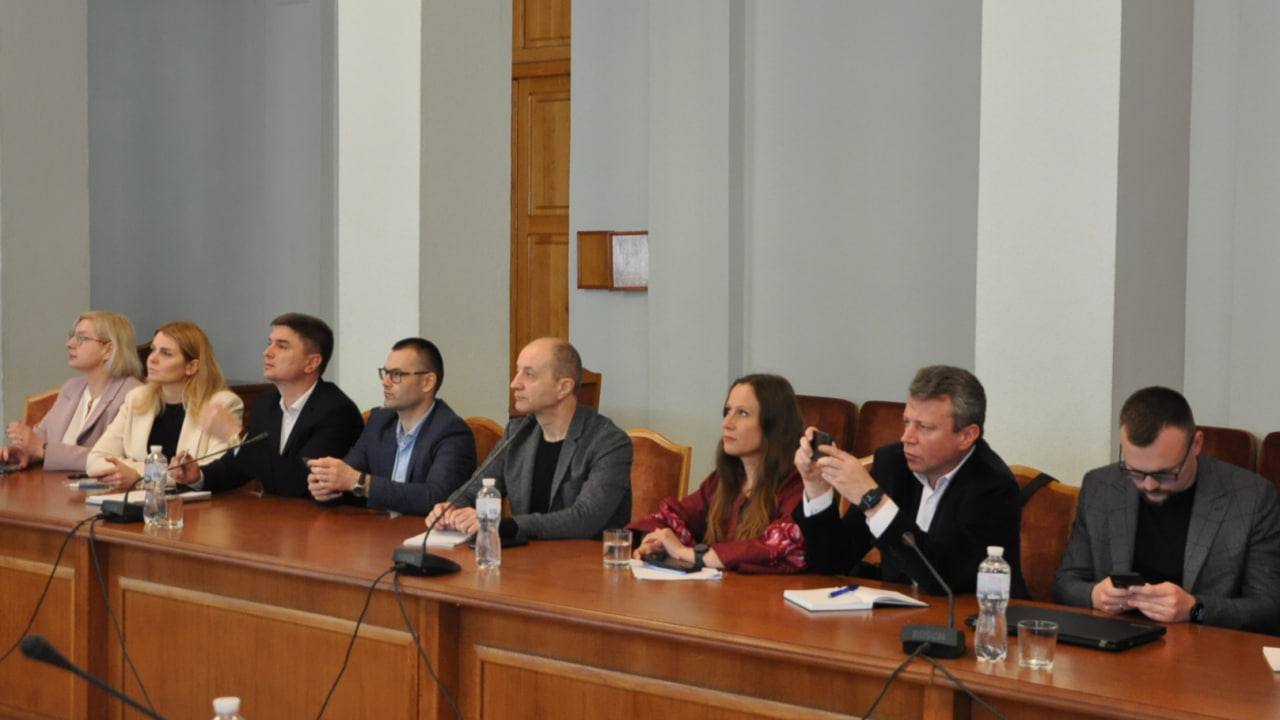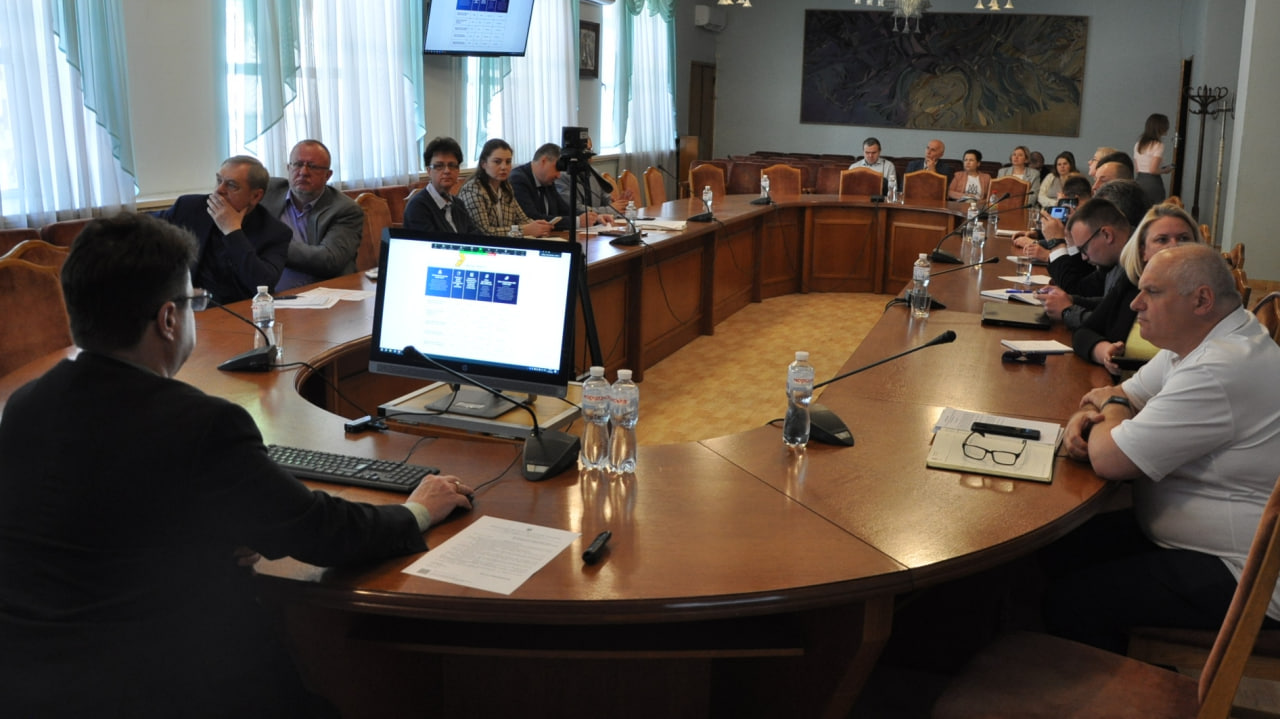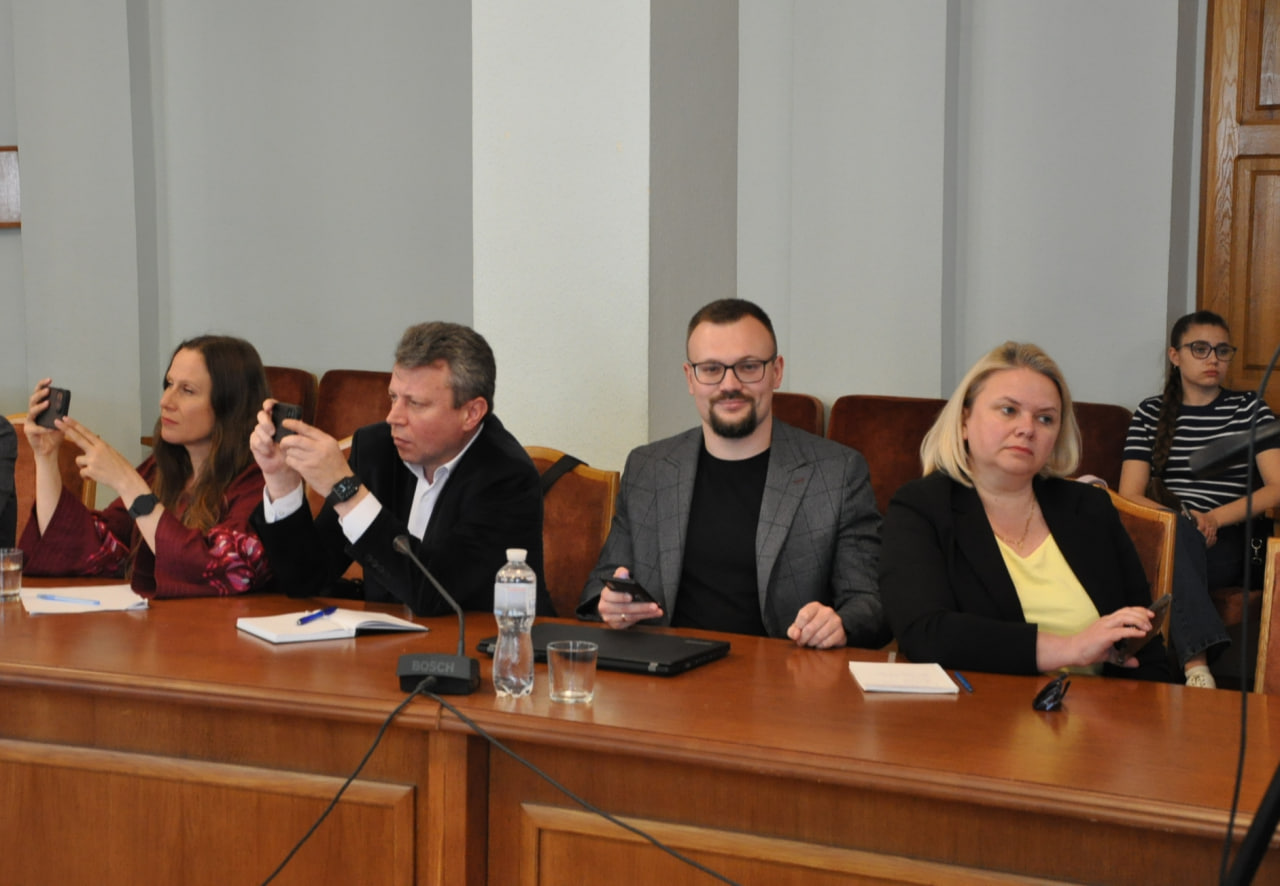On 1 May, the Ministry of Education and Science of Ukraine held a mixed format meeting with the heads of higher education institutions.
Vice-Rector for Scientific and International Work, Doctor of Technical Sciences, Professor Olena Stepova represented the National University “Yuri Kondratyuk Poltava Polytechnic” at the meeting live.




Deputy Minister of Education and Science Mykhailo Vynnytskyi spoke about the innovations and changes for the applicants and universities in 2024, which are being introduced in the context of the systemic higher education transformation in Ukraine.
As for the key features of the 2024 admission campaign, applicants will be admitted to universities based on the results of the National Multi-subject Test (NMT). The minimum competitive score (150 points) is set for such specialities as law, public administration and management, international relations and some specialities in the field of healthcare knowledge (dentistry, medicine, pharmacy, industrial pharmacy and paediatrics).
To apply for a master’s degree this year, some specialties will be required to pass the Unified Professional Entrance Exam (UPEE). This exam is important for such specialities as education/pedagogy, social and behavioural sciences, journalism, management and administration, law, information technology, service industry, public administration and management, and international relations. And bachelor’s degree graduates in such specialities as cybersecurity and information protection, road transport, transport technologies (by type) will be able to enter a master’s degree programme only if they pass the Unified State Qualification Examination (USQE).
Also this year, for the first time, when applying for postgraduate studies, masters of all specialities will take a unified entrance exam (UEE), which includes a test of general academic competence and a foreign language.

“The tendency to increase state testing is not accidental. We are guided by the principle that the quality of education is above all else. That is why the examination system will continue to develop and the UEE, UPEE and USQE will be used for all levels of education, and will be especially actively introduced in the future for regulated specialities,” – noted Mykhailo Vynnytskyi during the meeting.
Another important topic of discussion with the rectors was legislative initiatives to change the system of budget financing of higher education, in particular the formulaic approach to the distribution of budget funds among higher education institutions, which was restored from 1 January 2024.
The Deputy Minister paid special attention to the individual educational trajectories that will be introduced in higher education after the President of Ukraine signs Bill No. 10177 (adopted by the Verkhovna Rada on 23 April 2024). The changes will allow students to determine their own pace of study (e.g., to complete a bachelor’s degree in 3.5 or 5-6 years rather than the fixed 4 years) and to create their own curriculum. The draft law also envisages the introduction of interdisciplinary bachelor’s programmes and the possibility to change educational institutions if necessary.
“This law will give impetus to major changes in higher education. In fact, we will be building new higher education standards, which, by the way, already need to be updated, as they were approved back in 2017-19. The introduction of individual trajectories will require significant internal work and changes from universities – this is a long process, as it means moving away from fixed groups and introducing individual curricula for each student. We will develop and implement new standards of higher education by the end of 2025,” – stated Mykhailo Vynnytskyi.
National University “Yuri Kondratyuk Poltava Polytechnic” has an effective model of the student-centred educational process and individual educational trajectories for the students.
Students of Poltava Polytechnic choose their academic disciplines through their personal electronic account, where they not only have the opportunity to indicate the disciplines they want to study with priority, but also to get acquainted with the description and structure of each discipline in a convenient format.
“Starting from the 2nd year of study, students of Poltava Polytechnic have the opportunity to form an individual educational trajectory by choosing their own disciplines from the catalogues of elective disciplines, which include the disciplines of the humanities cycle, the legal cycle, the financial and economic cycle, the engineering and natural science cycle, the mathematics and IT cycle.
For example, engineering students can choose to study humanitarian or economic disciplines, forming exactly the set of learning outcomes they need.
In addition to the university-wide catalogue of elective courses, students can choose from the catalogues of faculties and educational and research institutes. The disciplines presented in these catalogues are aimed at deepening knowledge in the professional field.
Finally, students choose one of the majors – sets of interrelated academic disciplines that form professional profiling within the student’s educational programme. The academic disciplines included in the majors are logically interconnected and complement the mandatory educational components of the study programme.
As a result of the concept of selectivity, each student has a truly unique set of educational components that does not overlap with the list of educational components of other students, even those who study with them in the same academic group,” – commented Vice-Rector Olena Stepova.
They also discussed the new regulations on the procedure for expulsion, interruption of studies, renewal and transfer of students as well as granting them academic leave.
Recently, a student of the Education and Research Institute of Finance, Economics, Management and Law became a scholarship holder of the Cabinet of Ministers of Ukraine.
It should be recalled that Poltava Polytechnic held the Digital Fest 2024 Open Day and launched the admission page, an additional enrolment for the courses preparing students for the unified entrance examination for master’s and postgraduate studies was opened, and registration for the UEE/UPEE for master’s and postgraduate studies was opened.
Media Center of
National University “Yuri Kondratyuk Poltava Polytechnic”



